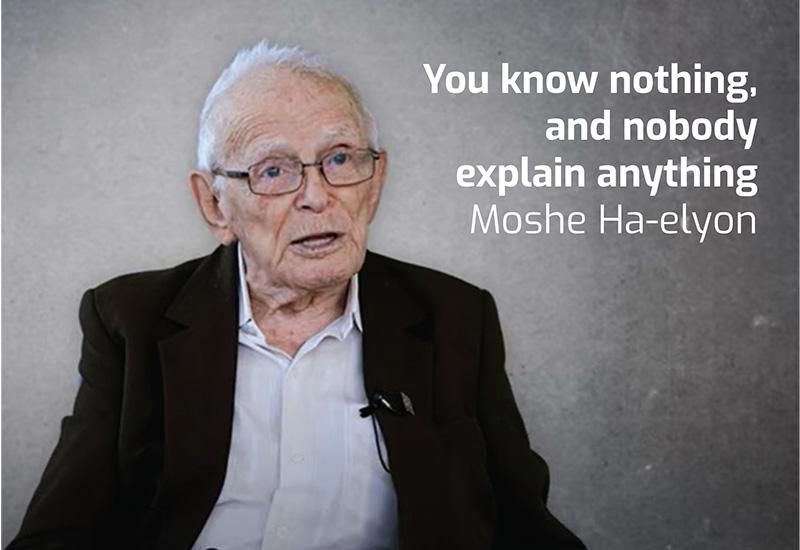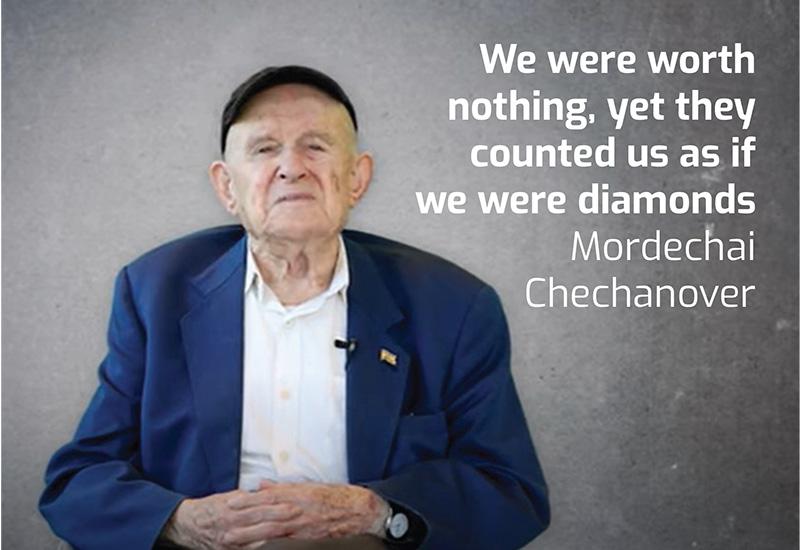Intended for elementary and high school students
Duration of activity: one hour
Objectives:
Getting to know the 'prisoner's experience' in Auschwitz through personal questions and answers of the survivors, and not necessarily through the historical-chronological narrative.
An emotional processing of the 'informal meeting' with Holocaust survivors and the issues arising from the videos using the question cards.
The course of the activity -
The students will watch the videos "Questions We Wanted to Ask - Conversations with Holocaust Survivors" and then talk about the survivors' answers by responding to the discussion questions and the attached question cards.
Here are some videos of conversations with Holocaust survivors who survived the Auschwitz-Birkenau concentration camp. In the videos, you will be able to hear about the arrival at the camp, the daily life there and the memories of the camp that accompany these survivors to this day, every day. After watching the videos, you can move on to the educational activity and discussion.
Points to think about while watching the videos and for discussion afterwards:
- What is the memory of the camp that comes back repeatedly in their answers? What do you think this indicates?
- What do you think can be learned from their answers about the subject of longing, about what they lost?
- Which word comes up repeatedly in their answers? What can be learned from this about existence in the camp?
- With what feeling did the prisoners walk around the camp according to their descriptions? How do you think this feeling affected them?
- These survivors were in their teens when they arrived in Auschwitz. What difficulties of this age did they have to face?
- Which answer particularly surprised you? Do you think there was a question that should not have been asked?
- Choose one of the answers that is particularly meaningful to you and explain why you think it is meaningful.
- What other questions would you like to ask the survivors?
Here are some sentences-excerpts from the survivors' answers. Choose the sentence that, in your opinion, most significantly reflects the experience of being a prisoner in the Auschwitz camp. Could you explain why did you choose this particular sentence?
- You know nothing' and nobody explain anything – Moshe Ha-elyon
- Why didn't he put a hand on me' and say goodbye? – Rachel Hanan
- We were worth nothing, yet they counted us as if we were diamonds – Mordechai Chechanover
- Is it fathomable how this was stayed with me my entire life? – Rachel Hanan
- When there is nothing , what can you even think about? – Rachel Hanan
- I'd believed I'd leave the camp – Moshe Ha-elyon
- I don't know how to explain it, hoe I stayed alive – Mordechai Chechanover
- That is one of the conditions of the camp – Moshe Ha-elyon
- A normal human being cannot understand what there was in hell – Mordechai Chechanover
- The feeling was that I have been sentenced to death, and I am waiting for the execution of the sentencing – Mordechai Chechanover
- You didn't know what was going to happen next – you could live or you could die – Moshe Ha-elyon
- What am I going to do now without a mother? – Mordechai Chechanover
- They take everything from you – Rachel Hanan
- We didn't cry. We didn't ask questions. Nothing – Rachel Hanan
- One always knows one was in Auschwitz – Mordechai Chechanover
- You can't know when it might come up – Rachel Hanan
- Something happens and you remember - Moshe Ha-elyon
To the teacher: you can print cards with these sentences on them, and allow the students to choose a card, or hang them on A4 pages and ask the students to write reactions and thoughts following them.










